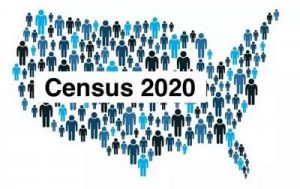Census delay creates legislative redistricting uncertainty
By Peter Hancock Capitol News Illinois — February 17, 2021
The U.S. Constitution requires states to draw new congressional district lines every 10 years, following the decennial census. States also use those numbers to draw maps for their state legislative districts.
SPRINGFIELD – Illinois lawmakers are required to draw new legislative and congressional district maps this year, but that process may be thrown into chaos because of delays in producing the census numbers needed to draw equal districts.
The U.S. Census Bureau announced Friday, Feb. 12 that due to the COVID-19 pandemic and other delays, it will not be able to deliver the detailed, block-level data that states need for redistricting until Sept. 30, long past the deadline spelled out in the Illinois Constitution for the General Assembly to approve new maps.
That’s also a full month after candidates are scheduled to begin circulating petitions to run for office and qualify for the March 15, 2022, primary election. The petition period begins Aug. 31 and filing begins Nov. 22, according to a spokesperson for the Illinois State Board of Elections.
“The Constitution says that the Legislature shall redistrict by law the year after the decennial census. So it’s pretty straightforward on that,” said Rep. Tim Butler, R-Springfield, one of the Republican House caucus’ lead negotiators on redistricting. “I’m sure 50 years ago (when the Illinois Constitution was written), they didn’t anticipate the problems that we would have over the past year with the pandemic and so on.”
The U.S. Constitution requires states to draw new congressional district lines every 10 years, following the decennial census. States also use those numbers to draw maps for their state legislative districts.
In Illinois, the process is spelled out in the state constitution, which provides that the General Assembly is to redraw those maps in the year following the census and that it must adopt those maps no later than June 30. With Democrats controlling each chamber of the General Assembly and the governor’s office, that would normally mean the party controls the mapmaking process.
But, the constitution provides, if lawmakers are unable to adopt new maps by that deadline, the task is automatically turned over to an eight-person commission evenly divided between Democrats and Republicans, and between lawmakers and people who are not members of the General Assembly.
That commission then has until Aug. 10 to produce maps that are agreeable to at least five members of the commission. And if the commission deadlocks in a 4-4 tie, the secretary of state then draws a name at random from a list of two individuals, one Republican and one Democrat, to break the tie.
The commission then would have until Oct. 5 to file a redistricting plan that has the support of at least five members. But if the census numbers don’t arrive until Sept. 30, that would leave the commission with only five days to complete its task.
That also leaves candidates little time to circulate petitions in order to file for office by the filing deadline in late November.
Butler said lawmakers may have no choice this year but to push back the date of the primary.
“Certainly, the election calendar is something that is probably going to be questioned in this spring session,” he said. “Obviously, this is something that just happened a few days ago, so we haven’t really heard a whole heck of a lot. But I wouldn’t be surprised if there’s ongoing discussions about moving the primary — not the general election next November, but the primary election, which is currently scheduled for March — maybe pushing it later in the year.”
phancock@capitolnewsillinois.com







